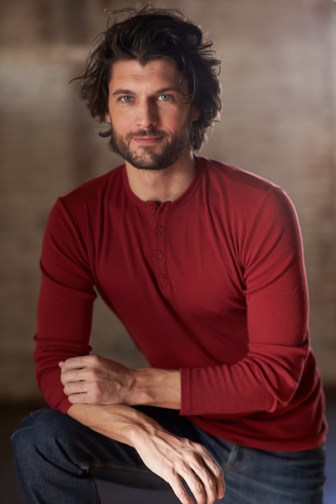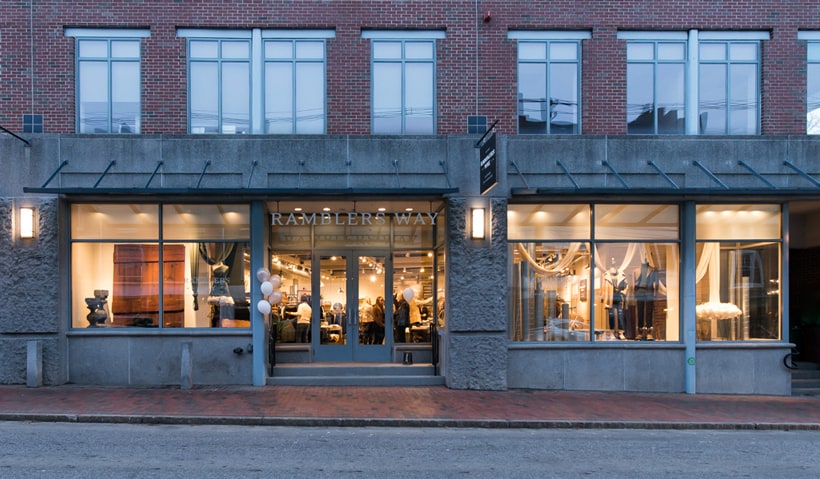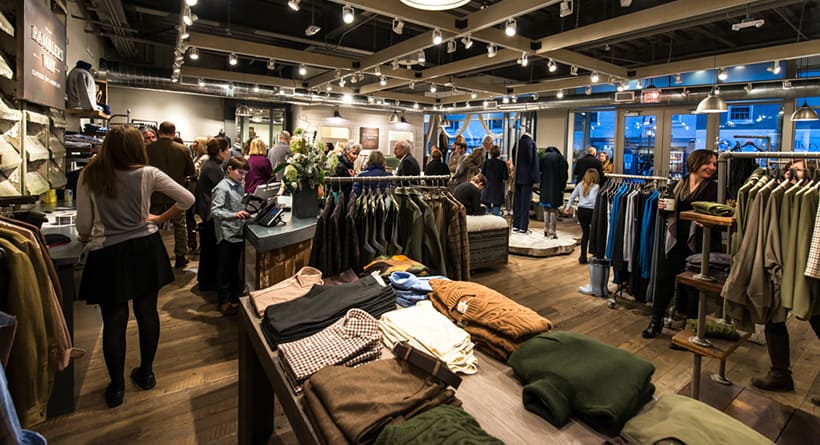When their first child brushed his teeth, Tom and Kate Chappell didn’t want him to use anything artificial or harmful. They added all-natural toothpaste to their product line and it became their signature item. Founded in 1970, Tom’s of Maine was experimental and different. Chris Chappell was the guinea pig.
His role eventually changed to a leadership position, and in time, Tom’s of Maine changed personal care for the better. He credits his parents with pioneering the natural products niche, which is overflowing with options he once didn’t have.
Now, the family has taken on the fashion industry with a clothing company called Ramblers Way.
“I don’t think anyone thought that the next project would be bigger than Tom’s of Maine, but that’s pretty much what it’s sizing up to be,” Chris Chappell said.

At left, Chris Chappell. Photo courtesy of Ramblers Way.
Ramblers Way specializes in quality, everyday clothing made from wool that’s soft enough for a first layer. These garments are sustainably made in the United States, from sheep to shelf. After opening stores in Hanover and Kennebunk, Maine, a third retail location opened in downtown Portsmouth this year. A fourth is planned for Portland, Maine.
Inspiration for Ramblers Way came in 2008, not long after Tom’s of Maine sold. Tom Chappell and one of his sons were on a two-week hiking excursion and their performance clothing wasn’t able to adapt to the conditions. He looked to nature for a solution and found it in wool.
When weather fluctuates, as it’s known to do in New England, wool can regulate body heat while staying breathable and odor-resistant. The problem is that it’s typically too itchy against skin. But Ramblers Way sourced Rambouillet merino wool for its fine, long fibers and developed a way to spin it into yarn that’s free of straggly ends.
The textile industry is an important part of the Chappell family’s history. But, these days, most labels are sewn overseas. It was challenging to find the resources and expertise needed to start an American clothing line, but that commitment to the environment and local economies sets the company apart.
There are higher costs associated with manufacturing a higher quality product and running a company that’s vertically integrated on the supply end, according to Chris Chappell. Ramblers Way clothing is more expensive than many brands that use cheaper materials, outsource labor, and rush to sell the latest trends.
“These massive companies have a lot of control, but they’re also doing a lot of damage. Fashion is doing a lot of damage. To take on that and to try to change it from within, for a small company, it’s really kind of a daunting task. I don’t even know if it’s really doable,” Chappell said.
He added that the fashion industry is one of the biggest threats to sustainability worldwide, and Ramblers Way shouldn’t be considered a part of that. He calls it “a fabric company first, whose output is fashion.”

At right, men’s Henley shirt. Photo courtesy of Ramblers Way.
“We don’t need to say we’re in the fashion industry. We’re kind of bucking the fashion industry. We’re doing things differently. That’s one of the reasons we’re in it,” he said.
Chappell, who directs marketing and e-commerce, knows some people won’t be swayed to pay more than what a three-pack of tees costs in a big box store. But, he said, all three of those shirts would be threadbare before one Ramblers Way shirt wears out.
“I think what you see with fast fashion, a lot of things aren’t made with quality in mind. There’s this sort of planned obsolescence built in and they’ll fall apart. But then again, it’s not even relevant six months from now because it’s based on fashion,” he said.
Ramblers Way garments are durable and versatile enough to wear from office to outdoors. Chappell describes the look and feel as casual elegance. “And then there’s the timeless nature of the styling. It’s not going to go out of style. It’s really classic,” he said.
The ability to wear the pieces often and for a long time helps justify the cost. Beyond that, Chappell believes there are people who share the company’s goals, people who are seeking their version of “a good life,” as the company’s motto says.
“I think there’s a general awakening, and we’re part of that trend. We could make fashion better,” he said.
Sustainability starts with ethically sourced materials, organic whenever possible. Last year, Ramblers Way introduced the first organic woolen shirt made in the United States. The sheep are treated fairly, and the workers are given a livable wage. The wool is safely cleaned and dyed, addressing a long-standing concern about water quality.
Clean water was one of the first motivations for all that Tom and Kate Chappell have done in business. In the 1960s, they were part of a back-to-the-woods movement, which brought them to Maine. Their first product was a natural cleaner for dairy farms, under the name Kennebunk Chemical Center. Then they produced the first phosphate-free laundry detergent, ClearLake.
Though the family business is still based in Kennebunk, Chris Chappell lives in Northern California, where he’s in a band called The Incubators. Music has always been the other constant in his life.
“I really enjoy it because you’re making art,” he said. “In a way, that’s what we’re doing at Ramblers Way, too. It’s art.”
Ramblers Way is located at 100 Market St., Suite 100, in Portsmouth, and online at www.ramblersway.com.

The third and newest Ramblers Way store is in downtown Portsmouth. photo courtesy of Dave Dostie
To read other Style Queue articles, click here.

